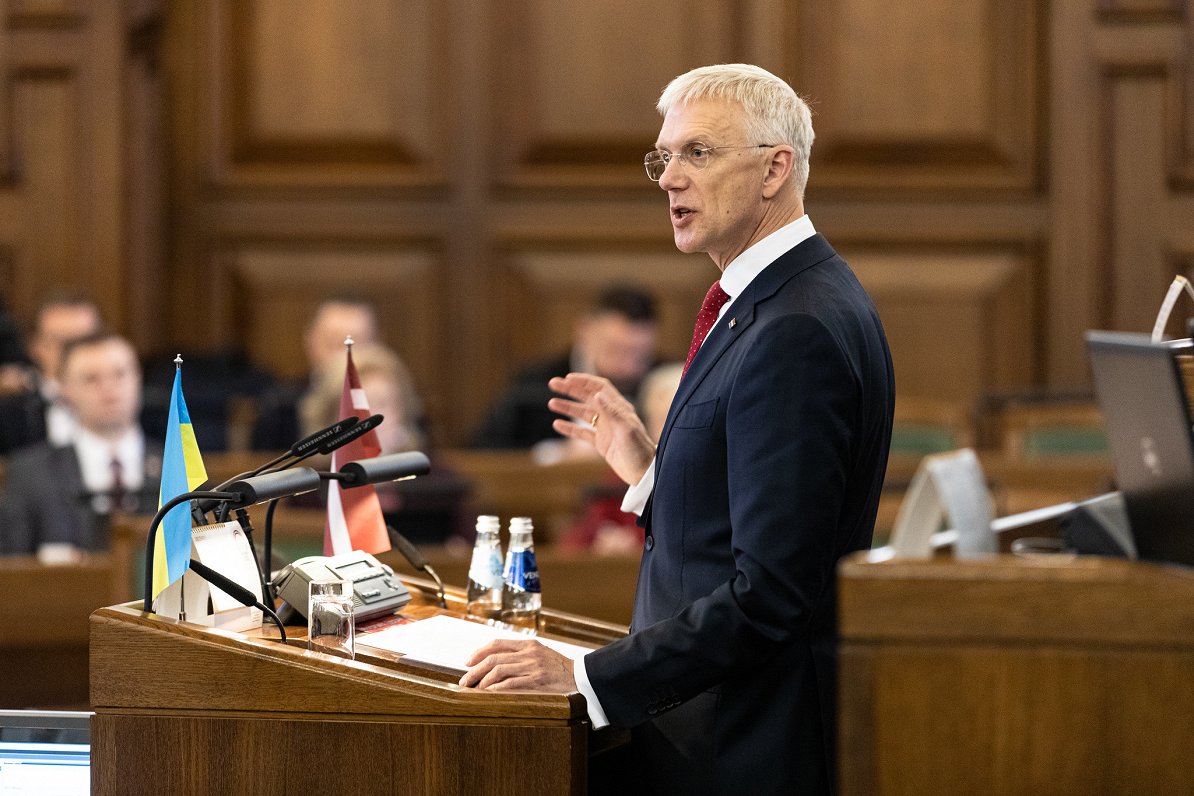Following more than six hours of debate, the composition of the new three-party coalition government was approved by a Saeima vote. Of 100 Saeima deputies in total, 54 deputies backed the goverment (being the full number of seats controlled by the coalition), while 37 MPs voted against it. The remaining 9 members of parliament were not registered for the vote.
Prime Minister Krišjānis Kariņš now gets the chance to head a second consecutive administration which has said its aim is the "economic transformation" of the country.
Outlining his government's program, Kariņš said "The brutal war started by Russia in Ukraine has fundamentally changed the situation in the world, including contributing to a rapid increase in the prices of energy resources, which in turn has caused a strong rise in inflation. As a result, we are experiencing a slowdown in the economy. We can describe these conditions as a crisis, but at the same time it can also be our opportunity. The new government and Saeima should use this time to reorganize our economy and improve welfare.
"In general I call it a broad transformation of the economy - it can be done on the condition that we focus on one goal – working for the people of our country. The new government is determined to implement the program outlined in detail in the government declaration and to take responsibility to do everything for the better life of the people of our country."
Predictably, opposition deputies expressed skepticism about the government and its chances of success, with many accusing the coalition parties of being out of touch with ordinary people and their problems.
Nevertheless, the composition of Latvia's 41st cabinet was approved and will now face the task of trying to fulfil its declared aims. The three parties in the right-of-center coalition are New Unity (JV), United List (AS) and the National Alliance (NA) and they have divided the portfolios in the following manner.
- Prime Minister – Arturs Krišjānis Kariņš (JV)
- Defense Minister – Ināra Mūrniece (NA)
- Foreign Minister – Edgars Rinkēvičs (JV)
- Economics Minister – Ilze Indriksone (NA)
- Finance Minister – Arvils Ašeradens (JV)
- Interior Minister – Māris Kučinskis (AS)
- Education and Science Minister – Anda Čakša (JV)
- Climate and Energy Minister – Raimonds Čudars (JV)
- Culture Minister – Nauris Puntulis (NA)
- Welfare Minister – Evika Siliņa (JV)
- Transport Minister – Jānis Vitenbergs (NA)
- Justice Minister – Inese Lībiņa-Egnere (JV)
- Health Minister – Līga Meņģelsone (AS)
- Environment Protection and Regional Development Minister – Māris Sprindžuks (AS)
- Agriculture Minister – Didzis Šmits (AS).
The parties forming the government have agreed in their declaration that five priority areas will be national security and foreign policy; education; energy, climate change and the environment; competitiveness; and improving quality of life.
Among the first to react on social media was Edgars Rinkēvičs, who now gets to further extend his tenure as Latvia's longest-serving Foreign Minister.
New Latvian Government has just been approved by the Parliament. Key foreign policy priorities are- fostering transatlantic ties and strong European Union, bolstering regional security and supporting #Ukraine
— Edgars Rinkēvičs (@edgarsrinkevics) December 14, 2022
I am honoured to continue to serve as Foreign Minister of #Latvia





























